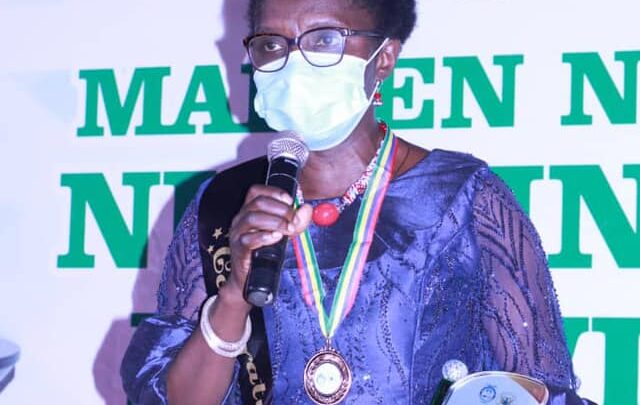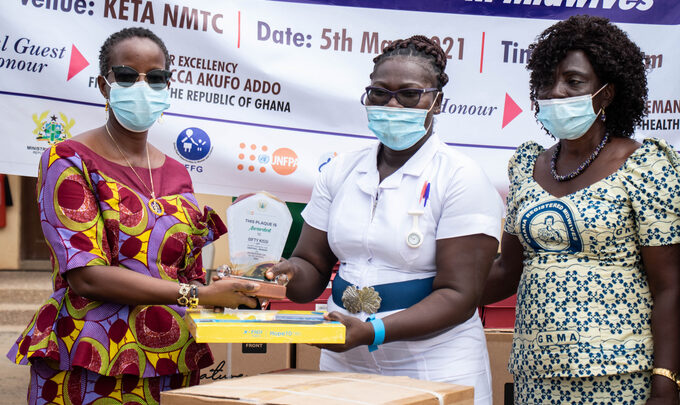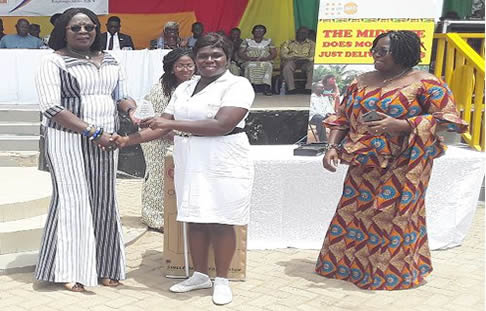GRMA urged recognition of the roles of midwives at policy implementation levels
Mrs Netta Forson-Ackon, the President of the Ghana Registered Midwives Association (GRMA), said midwives play an unparalleled role in nation-building, hence the need to recognise such roles to ensure the dignity of the profession.
She has, therefore, advocated for a lead midwife in all health facilities, under the Ghana Health Service, teaching and quasi-hospitals as well as specialist midwives at all those facilities.
She said a director of midwifery was also urgently required at both policy and implementation levels of health care in the country as well as in boards, councils and related ad-hoc committees in the health for better service delivery.
Mrs Forson-Ackon said this at the launch of the 31st International Day of the Midwife, held at Techiman, the Bono East Regional capital.
The Day, which falls on May 5, was instituted by the International Confederation of the Midwives (ICM) to celebrate their works and services across the world.
This year’s celebration is on the theme: “100 Years of Progress, Fostering Midwifery Leadership in Ghana”.
Mrs Forson-Ackon called for strengthening and supporting sustainable midwifery through education and research and training to position them well to offer proper care.
“We need everybody to support the nation, and to help support the health sector to achieve the Sustainable Development Goal three of good health and well-being”, she stated.
Mr Niyi Ojuolape, the Country Representative of the United Nations Population Fund (UNFPA), said one could not underestimate the contributions of midwives towards achieving the 2030 SDGs of reducing maternal mortality and ensuring universal access to sexual and reproductive health care and Universal Health Coverage.
In a speech read on his behalf, Mr Ojuolape expressed regret that women and girls continued to die every day in Ghana from complications of pregnancy and childbirth, whilst many others developed complications including obstetric fistula.
The 2021 State of the World’s Midwifery Report said well-trained midwives could help avert roughly two-thirds of all maternal and newborn deaths and deliver 87 per cent of all essential sexual, reproductive, maternal and newborn health services.
“Building the skills and strengthening the capacity of the nursing and midwifery workforce at a country level will therefore be critical to accelerate progress”, he added.
Mr Ojuolape, therefore, called on the government to provide opportunities that enabled midwives to take up roles in government ministries, districts and agencies.
Mr Kwasi Adu-Gyan, the Bono East Regional Minister, expressed worry over the inadequacy of the nation’s maternal health systems, saying: “We need quality midwifery care nationwide to assist in improving sexual, reproductive, maternal and newborn, child and adolescent health”.
While calling on the GRMA to partner the Government to achieve such an important goal, he encouraged the Ghana Health Service to continue its good work to ensure better services for all women and children, especially in the rural areas.















